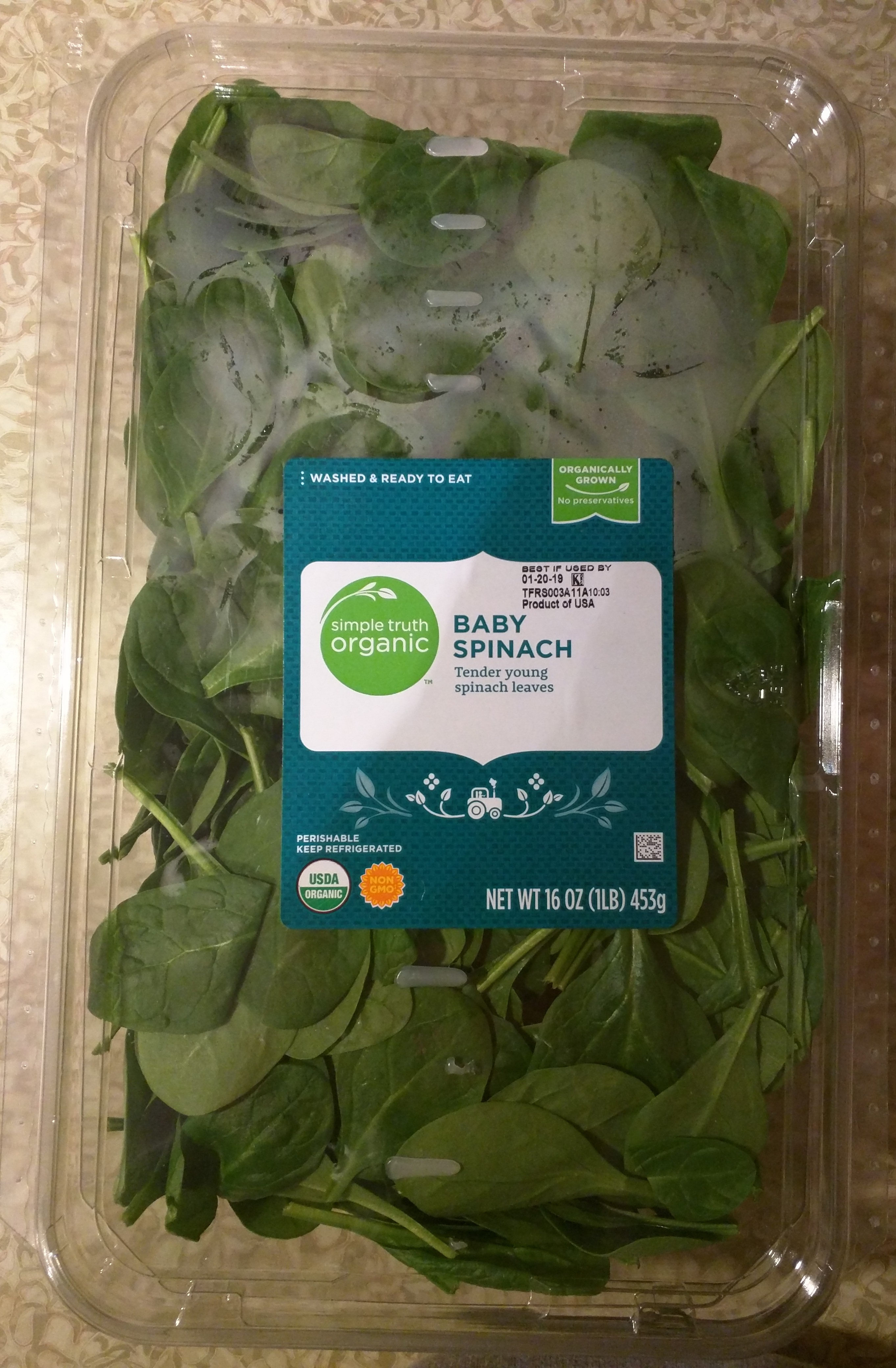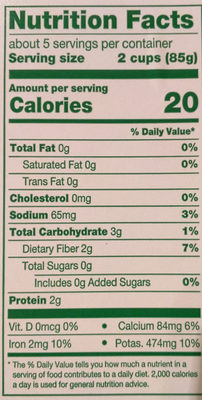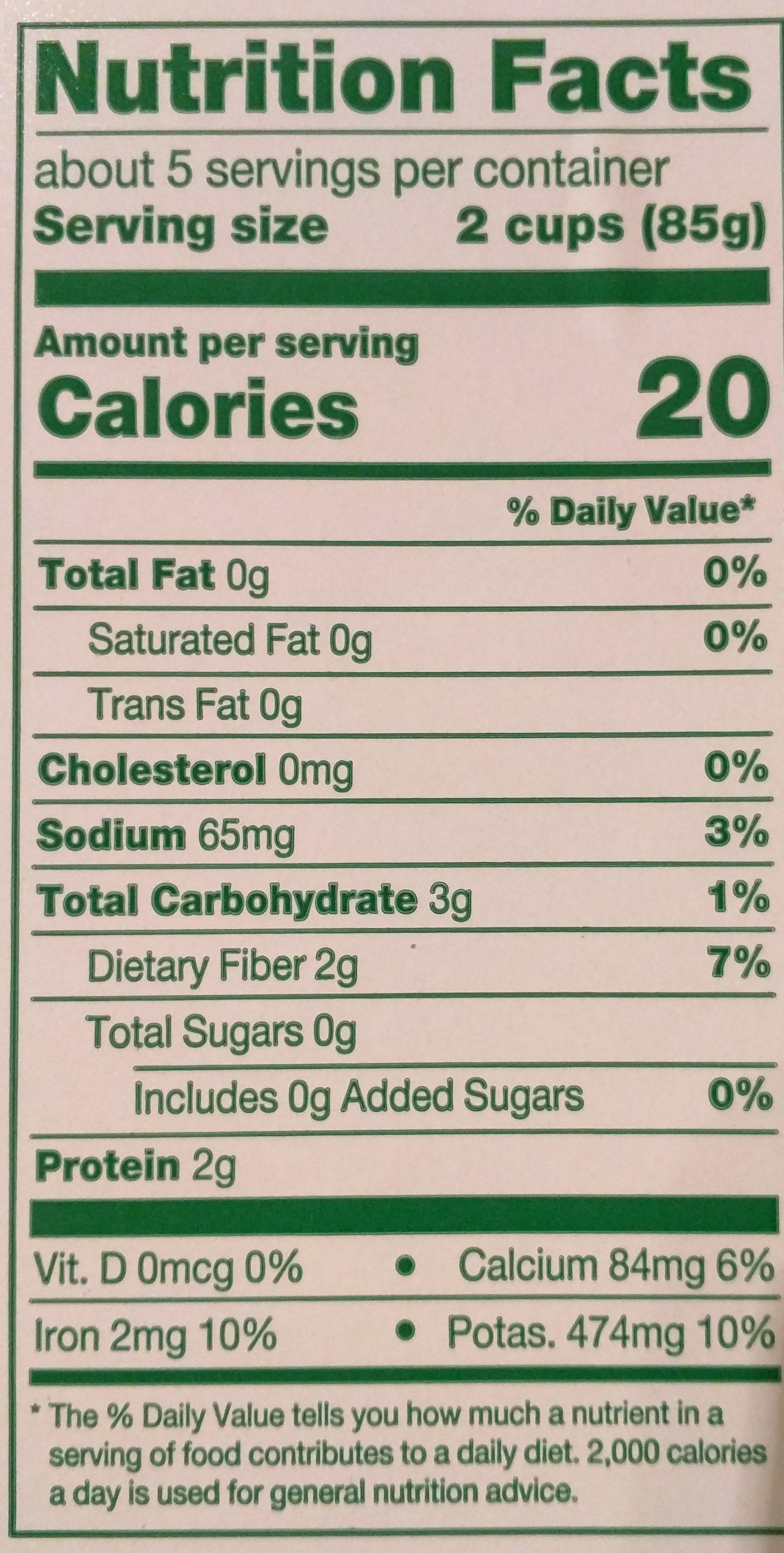Simple truth organic, baby spinach - 453 g
This product page is not complete. You can help to complete it by editing it and adding more data from the photos we have, or by taking more photos using the app for Android or iPhone/iPad. Thank you!
×
Barcode: 0011110911513 (EAN / EAN-13) 011110911513 (UPC / UPC-A)
Quantity: 453 g
Packaging: Plastic, Fresh, Clamshell
Brands: Simple Truth Organic
Brand owner: The Kroger Co.
Categories: Plant-based foods and beverages, Plant-based foods, Fruits and vegetables based foods, Vegetables based foods, Vegetables, Fresh foods, Fresh plant-based foods, Leaf vegetables, Fresh vegetables, Spinachs, Fresh spinachs
Labels, certifications, awards:
Organic, No preservatives, USDA Organic
Stores: Fred Meyer
Countries where sold: United States
Matching with your preferences
Environment
Packaging
Transportation
Report a problem
Data sources
Product added on by usda-ndb-import
Last edit of product page on by packbot.
Product page also edited by inf, moon-rabbit, openfoodfacts-contributors, org-database-usda, roboto-app, schalken, wolfgang8741.









